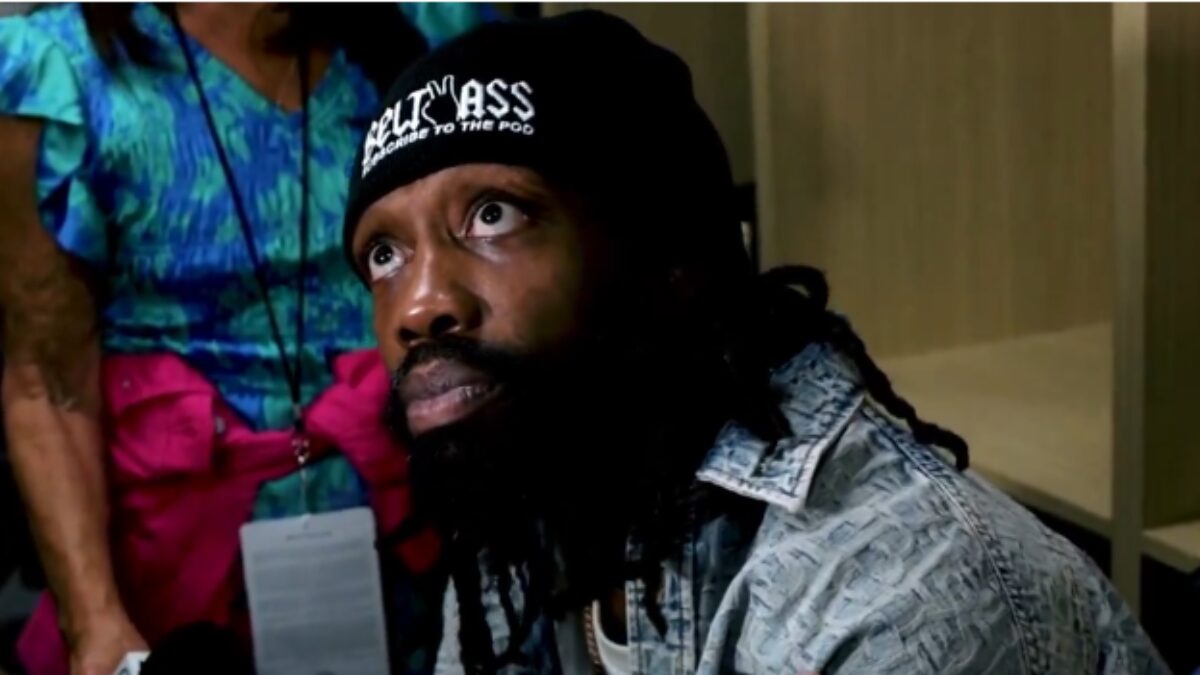After the Milwaukee Bucks dropped Game 6 of the Eastern Conference Quarterfinals to the Indiana Pacers and were thus eliminated from the NBA Playoffs, guard Patrick Beverley declined to answer a question during his postgame media availability. The question came from longtime ESPN producer Malinda Adams, who was then asked by Beverley if she subscribed to his podcast. When she said that she did not, Beverley informed her that he would not be answering her question. As he was talking with another reporter, he directed Adams to remove her microphone from the media scrum and asked her to leave the postgame availability.
This acrimonious speech and repulsive conduct added to what was already a controversial night for Beverley. Towards the end of the game, he hurled a basketball at a group of Pacers fans two times. Beverley claimed on X that it was “not fair at all” and was trying to get security to do something about the group.
Nonetheless, Beverley, who will be a free agent once the playoffs end, has been the subject of scorn and contempt due to both incidents and the history he has accumulated of problematic behavior. His actions were a subject of discussion on Friday’s edition of The Dan Le Batard Show with Stugotz, specifically pertaining to what he did in the locker room and how he acted towards media trying to do its job.
“Patrick Beverley is getting dragged today, and it’s not just a basketball moment and it’s not just an a**hole to reporters moment,” Le Batard said. “It’s ‘cause he did it to a woman. It’s getting more and more inflamed because he did it to a woman, and it’s not, ‘Who cares? Shut up.’ People do care.”
Beverley has appeared on ESPN as an analyst during playoffs coverage in the past and currently hosts his eponymous podcast through Barstool Sports. Amin Elhassan, who hosts several shows for Meadowlark Media, addressed the situation directly from the moment the audio was played on the program.
“He does not have the power to eject someone from media availability. P.R. does,” Elhassan said. “If P.R. wants to say, ‘Ma’am, you need to leave,’ then that’s one thing. I wish someone would have said, ‘Hey man, just shut up and answer the question.’ One would hope that somebody in that room says, ‘Hey man, just answer the question. Stop messing around.’”
Show contributor Jeremy Taché added that while athletes have neglected to answer questions in the past, the action Beverley took by instructing a media member to remove their microphone and exit the postgame availability was particularly alarming and extremely disrespectful. Elhassan replied by placing some of the blame on the other journalists who did not choose to speak up and support Adams in the moment. Le Batard then pointed out that Beverley was wearing headwear that read ‘Ass,’ which he stated described both his behavior and his performance in the game.
“Do you know how many people there are in the NBA who average nine points a season for their career or whatever it is that Patrick Beverley averages?,” Le Batard questioned. “He’s famous and known for being this thing that is a little crazy and a lot of irritant and yappy – perpetually yappy.”
Elhassan emphasized that Adams did not do anything wrong and was simply trying to complete the tasks associated with her job. In the end, he believed that Beverley was trying to promote what he referred to as his “stupid-ass podcast.” Show contributor Charlotte Wilder added that Beverley had refused to talk to other reporters in Milwaukee during the season if they were not subscribed to his podcast. She felt that public relations professionals and other journalists in Milwaukee need to realize that they will ultimately be there longer than Beverley and stand up for those being disrespected.
“If he had a 10-year deal, who the f**k cares,” Elhassan said. “‘I didn’t get the Patrick Beverley quote.’ Who the f**k cares?”
Show contributor Tony Calatayud presented the dichotomy of players being a headache to a team and having value. He believes that Beverley is “already on the headache side of the spectrum” and does not believe that a team will view it as essential to sign him to a contract next season. Le Batard, who has covered sporting events and been in postgame media availability sessions before, provided his opinion on the state of the locker room.
“I don’t believe that the locker room is still as safe for women as it is for men,” Le Batard said. “Everyone’s trying, but you’re occasionally going to have the man in a locker room who’s not okay with women in the locker room…. It’s not the place it was when I was growing up in locker rooms, but there are plenty of men athletes still in locker rooms who are not welcoming to women there. It is not as friendly to women as it is to men by consensus. Some people are just sort of tolerating it or pretending.”









